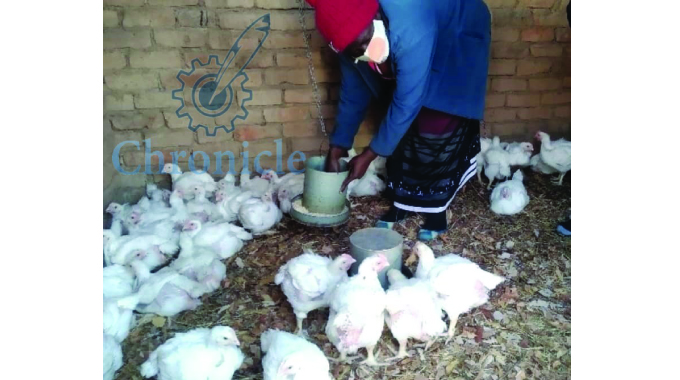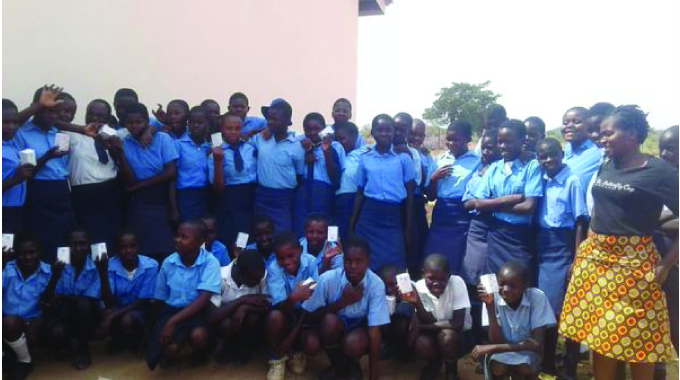Gwanda Community Share Ownership Trust keeps families going

Yoliswa Dube-Moyo, Matabeleland South Bureau Chief
THE Gwanda Community Share Ownership Trust (CSOT) has transformed the face of various communities in the district through funding a number of development projects.
Initiated in 2012, CSOTs are meant to act as vehicles of community development using proceeds from resources such as minerals within each district.
Projects that are supposed to be funded include construction of schools, clinics and roads among other projects.
The Gwanda CSOT has funded the construction of science laboratories at Silonga and Sonoma secondary schools.

borehole drilling ( Photo Credit: iStockphoto)
A number of wards in the district also benefited from borehole drilling.
In some communities such as Gwanda North, poultry projects were funded.
One of the beneficiaries of the poultry projects Ms Siphathisiwe Sibona said the project has kept families going.
“Through the project, we’re able to generate enough income to take care of our children. We received training on how to rear chickens,” said Ms Sibona.
In the past, she said, it was difficult to make ends meet but women have been empowered through the poultry project.
“It’s not easy having to continuously beg someone for money.
You find that you’re always at that person’s mercy because you depend on them for everything.
But if you have your own income, you can shield yourself from certain forms of abuse,” said Ms Sibona.
She said the project consists of 20 members who at any given time take care of at least 1 000 chickens.
“We help each other to manage the project and continue to re-invest in the business so that we don’t run out of feed and all that.
We sell the broilers to surrounding communities and some shops in Gwanda,” said Ms Sibona.

The Gwanda community recently received US$360 000 paid to the Gwanda CSOT by Blanket Mine, a subsidiary of Caledonia Mining Corporation.
In 2012, Caledonia Mining Corporation facilitated the ownership of 51 percent of Blanket Mine by Indigenous Zimbabweans in accordance with the prevailing legislation at that time.
This included a 10 percent ownership by the local community via the Gwanda CSOT.
In 2020, following changes in legislation, Caledonia increased its shareholding in Blanket to 64 percent, but the Gwanda CSOT retained its 10 percent ownership.
The community share ownership scheme is a Government initiative meant to ensure that communities benefit from the exploitation of their natural natural resources.
According to Blanket Mine, in 2012 and 2013 the company made advance dividend payments to the Gwanda CSOT totaling US$4 million so it had funds to establish its operations.
“Gwanda CSOT repaid the advance dividends by sacrificing its entitlement to future dividends: initially Gwanda CSOT sacrificed 100 percent of its dividend entitlement, which was subsequently reduced to 80 percent.
The outstanding balance of the advance dividend account at June 30, 2021 (being the most recent reporting date) was US$0,2 million,” said Blanket Mine in a statement recently.
Chief Mathema described the setting up of the community ownership schemes as a noble idea, with vast potential to empower communities if properly managed.
He said the Gwanda scheme was the most successful in the country, with various funded projects having been completed.
Through the scheme, each of the five chiefs in Gwanda District received funds to develop schools in their areas and the establishment of income generating projects for communities.
“This is one of the best schemes introduced by Government, ”said Chief Mathema.
He said through the scheme they have managed to electrify a clinic and connect piped water from Thuli River.
Chief Mathema said the scheme also funded a number of projects at different schools, especially infrastructure development and buying of furniture.
“Most rural schools in the district, which are far apart, had sub-standard infrastructure and had no furniture which as compromised the quality of education,” said Chief Mathema.

Sibhula Secondary School pupils
At Sibhula Secondary School, Chief Mathema added, the scheme provided furniture and other learning material for the pupils.
“We also constructed a classroom block at Maphane Secondary School and we’re planning to build more primary and secondary schools to reduce the distances walked by pupils, ” he said.
Other projects which benefited from the Gwanda CSOT include the construction of Silikwe Clinic, the renovation of Sitezi Clinic as well as the rehabilitation of Sukwi and Guyu irrigation schemes.
Gwanda CSOT chief executive officer Mr Coster Nkala said the US$360 000 they received from Blanket Mine as its share of declared dividends in this quarter, will be used for socio-economic development projects within the communities of Gwanda.
He said this will be in pursuit of their vision for a “socially and economically empowered Gwanda community.”
“Our overarching strategic plan has two programmes which are Policy and Administration and Socio-Economic Empowerment and Investment.
There are four programme outcomes which are improved governance and administration, improved community empowerment and development, improved access to funding by communities and improved revenue generation.”

National Development Strategy (NDS1)
He said these will ensure that the scheme works towards the fulfilment of its mandate and make contribution to the National Development Strategy 1 (NDS1).
Mr Nkala said the Trust adopted a new socio-economic development model that combines business sustainability and social entrepreneurship as opposed to the social transfer approach that has been used during the early years of its establishment.
“The ultimate goal is of a “socially and economically empowered Gwanda community.” Socio economic empowerment concepts such as Shared Value Concept and Social entrepreneurship are being embraced,” he said
Mr Nkala said their aim was to transform the Trust to become a community organisation that uses business as an instrument for socio-economic development, which reflects the balance between financial and social objectives. – @Yolisswa










Comments